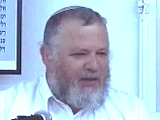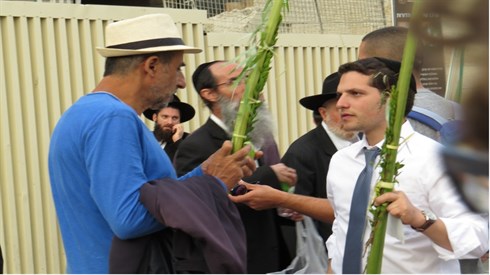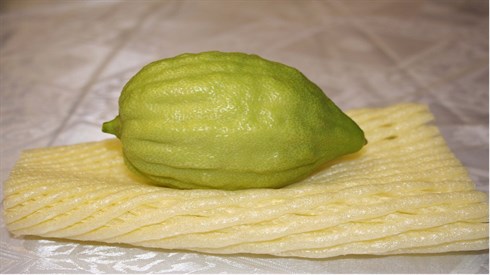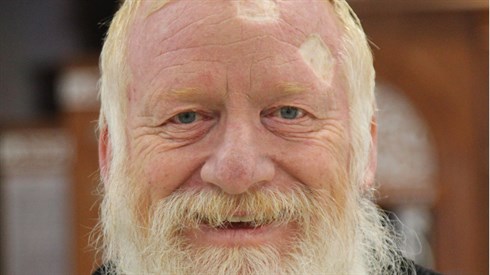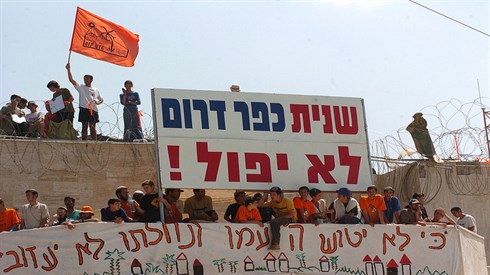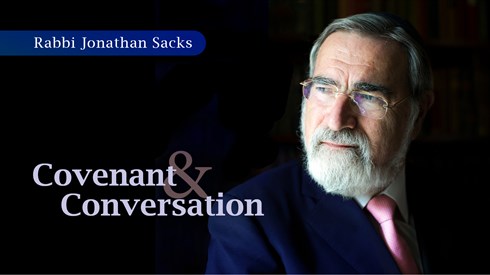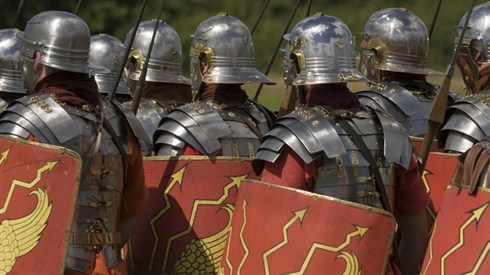- Jewish Laws and Thoughts
- Charity and Lending Money
"I agreed to support my married children for five years. May I use maaser money for this?"
Question #2: Chomesh
What is chomesh?
Question #3: Tuition
May I pay tuition out of maaser kesafim funds?
Question #4: Testing Hashem!
May I ask Hashem to pay me back for the tzedakah money that I give?
Which maaser?
We should first note that the term maaser, without specifying which one, is used sometimes in the Mishnah and Gemara to refer to maaser rishon, and sometimes to refer to maaser sheini, and, in later halachic works, sometimes also to maaser kesafim. These three types of maaser have vastly different laws from one another. Usually, one can understand from context which maaser is intended. If the context alludes to maaser owned by a Levi, or to the first maaser being separated, maaser rishon is intended. If it refers to something that has sanctity, usually maaser sheini is intended. If it refers to a percentage of one’s income that is donated to tzedakah, it refers to maaser kesafim.
The above questions all relate to shaylos about how much someone should donate to tzedakah and how he should prioritize his giving. It is well known that Rav Moshe Feinstein used to complain that these are areas of halacha about which he was asked too infrequently.
Maaser kesafim: giving ten percent of one’s moneys to tzedakah. The poskim dispute whether one subtracts household expenses from one’s income, before calculating maaser.
The concept of maaser is primarily in the case of ayn ani bifanav, when I fulfill the mitzvah by putting aside money for tzedakah. In a case of ani bifanav I do not fulfill my mitzvah by giving him only ten percent.
A person who distributes maaser kesafim to the poor is blessed with a special guarantee of wealth (Taanis 9a). This beracha happens only when someone is meticulous to calculate exactly a tenth of one’s income for tzedakah (Shu’t Avkas Rocheil #3). Furthermore, this beracha is fulfilled only if one gives this maaser money to the poor, but if one gives part of it to other causes, there is no guarantee that wealth will follow (see Shu’t Radbaz 3:441). Therefore, although one may use maaser kesafim to buy an aliyah, pay for a "mi’shebeirach," purchase sefarim that will be used by the tzibur (Taz, Yoreh Deah 249:1) or similar communal needs, it is preferred to earmark maaser kesafim for the needs of the poor (Rema, Yoreh Deah 249:1). Donations to Torah institutions are considered distributions to the poor (Ahavas Chesed 2:19:2), as are hachnasas kallah expenses (to pay wedding and related expenses for a poor groom or bride).
Chomesh: giving twenty percent of one’s moneys to tzedakah. This is the optimal level of fulfilling mitzvas tzedakah, whereas setting aside ten percent is considered only "midah beinonis," an average person’s conduct. Someone who gives a chomesh to tzedakah should first calculate and set aside one tenth, and then a second tenth.
Before starting to give regular amounts of tzedakah on an ongoing basis, one should declare that he is following this procedure bli neder, without accepting it as a vow.
Paying for Your Kids in Kollel from Maaser Money
"I agreed to support my married children for five years. May I use maaser money for this?"
The Chasam Sofer authored a responsum (Shu’t Chasam Sofer, Yoreh Deah #231) on this subject, which is fascinating for the many different halachic issues that he clarifies. Someone had arranged the marriage of his scholarly son to the daughter of a talmid chacham, with the following understanding: The father of the son accepted that he would pay every week a certain amount to his mechutan, the bride’s father, who would sustain the young growing family in his home, thus enabling the son-in-law to continue his studies under his father-in-law’s direction. The father of the chosson realized that it will be difficult for him to meet this commitment, and wants to know if he can use the maaser money from his business endeavors to provide the support for which he is responsible.
The Chasam Sofer opens his discussion by quoting two opinions that seem to dispute whether it is acceptable to use maaser money for such an expenditure. The Rema, quoting the Maharil, contends that it is not permitted to use maaser money to pay for a mitzvah, such as donating lamps and candles to the shul, whereas the Shach states, in the name of the Maharam, that it is permitted to use maaser money for mitzvos. Thus, whether one may pay for mitzvos, other than supporting the poor, from maaser money appears to be a dispute among early authorities.
The Chasam Sofer then quotes the Be’er Hagolah, who explains that the two above-quoted opinions are not in dispute. All authorities prohibit using maaser money to fulfill a mitzvah that someone is already obligated to observe. The Maharam, who permitted using maaser money for these purposes, was discussing a case in which the donor intended to use maaser money for this mitzvah from the outset, whereas the Maharil is discussing a situation in which he has been using his maaser money to support the poor, in which case he cannot now divert it for other mitzvos that do not qualify as tzedakah for the poor. Thus, according to the Be’er Hagolah, whether the father can begin meeting his obligations to his son and mechutan with his maaser money will depend on whether he has already accepted the obligation on himself to pay this from other funds, in which case he cannot use maaser money for it, or if it is an obligation that he is now accepting upon himself, in which case he can specify that he wants to use maaser money to fulfill it.
The Chasam Sofer does not consider the approach of the Be’er Hagolah to be fully correct. He (the Chasam Sofer) notes that the Maharil wrote that maaser moneys are meant to support the poor and not for the acquisition of mitzvos. Therefore, use of maaser money for any type of personal mitzvah is inappropriate, whether he is already obligated to fulfill the mitzvah or not.
The Chasam Sofer concludes that when someone begins donating maaser money, he may stipulate that, sometimes, the money will be used for a mitzvah donation, such as the lighting in shul. However, once he has begun donating his maaser money regularly to the poor, he must continue using it for tzedakah.
Family first
Having determined that there are definitely situations in which maaser money must be given to the poor, the Chasam Sofer then discusses when and whether money designated for the poor can be used to support an individual’s extended family. There is a general rule that one is obligated to the poor to whom one is closest – close family first, more distant family next, neighbors third, members of one’s city next and the out-of-town poor next.
Greater needs
Notwithstanding that family should be supported first, the Chasam Sofer quotes from his rebbi, the author of the Haflaah, that the rules of "closest first" or "family first" are only when the funds are necessary for the same level of need, for example, all have enough to eat, but not enough for clothing. However, if some are short of food, and others have enough to eat but are short on clothing or other needs, the responsibility to make sure that someone has enough to eat comes first, even for someone out of town, regardless of whether there are neighbors or locals who are needy, as long as they have sufficient food.
Yet, concludes the Chasam Sofer, this prioritization is not absolute. All needs of someone’s family are considered his responsibility before the basic needs of others. In other words, the priorities should be as follows:
(1) Family needs.
(2) Most basic needs – food – regardless of location of needy.
(3) People of one’s city.
(4) The out-of-town poor.
Chasam Sofer’s conclusion
If the father had stipulated, at the time of obligating himself to support his son, that he would use maaser money for this obligation, he would be able to use it. Even then, the Chasam Sofer recommends that he use only up to half of his available maaser money to support his son. His reasoning is based on a Mishnah (Peah 8:6) which says that someone is permitted to save his maaser ani (the tithe one gives to the poor in the third and sixth year of the shemittah cycle) to support those that he chooses to, but he should not set aside more than half of his maaser ani for this purpose; the rest should be given to the local poor.
However, this is only when he had originally planned to use maaser money for this purpose. Otherwise, once he created an obligation upon himself to support his son, it is similar to any other obligation that he has, and he may not use his maaser money for this purpose.
Tuition
Rav Moshe Feinstein ruled that one should not pay tuition for sons and daughters in elementary school and high school from maaser funds, because this level of education is obligatory. However, someone eligible for a tuition reduction who elects to pay full tuition may pay the extra from maaser (Shu’t Igros Moshe, Yoreh Deah 2:113; also see Ahavas Chesed 2:19:2). If paying the expected amount of tuition without resorting to maaser funds creates hardship, one should ask a shaylah.
Yeshiva gedolah tuition and expenses may be paid from maaser, because a parent is not obligated to support a child at this age.
Testing Hashem!
At this point, let us discuss the last of our opening questions: "May I ask Hashem to pay me back for the tzedakah money that I give?"
It is generally prohibited to "test" Hashem, as the Torah states, "Lo senasu es Hashem," "Do not test Hashem," (Devarim 6:16). One may not say, "I am performing this mitzvah so that Hashem will reward me by providing me with such-and-such (Sefer Yerei’im #361; Sefer Hachinuch, Mitzvah 395, 424; Shu’t Radbaz #882).
However, there is one exception to this rule – one may give maaser kesafim, expecting to be blessed with wealth as a reward (Taanis 9a, as explained by Shu’t Avkas Rocheil #3; Sefer Hassidim #144; Rema, Yoreh Deah 247:4; Ahavas Chesed 2:18. Cf. Shel"a and She’ei’las Ya’avetz #3, quoted in Pischei Teshuvah 247:2).
The Gemara (Taanis 9a) relates that, after Reish Lakeish’s passing, Rabbi Yochanan encountered his nephew (who was Reish Lakeish’s son). Rabbi Yochanan asked his nephew what he had learned in cheder that day. The nephew replied, "Te’aser kedei shetis’asher," "Give maaser so that you get rich."
"How do you know?" asked Rabbi Yochanan.
"Go test it," answered the nephew, who then asked, "But is one permitted to test Hashem?"
Rabbi Yochanan replied, "I heard from my rebbe, Rabbi Hoshiyah, that this is an exception --because of the pasuk in Malachi (3:10), where Hashem begs us to test Him when giving maaser and see for yourself that He opens the windows of Heaven and grants blessings until our lips weary of saying ‘Enough!’"
We see from this that it is permitted to declare that I am giving the correct amount of tzedakah and expect that Hashem will reward me with wealth. I know several people who personally attest that this beracha was fulfilled!


Is Rounding Up Ribbit?
Rabbi Daniel Mann | Tevet 21 5781
Change of Policy
Rabbi Daniel Kirsch | Shvat 4 5781


Using Tzedaka Funds for Grandchildren’s Education
Rabbi Daniel Mann | Tevet 23 5780


The Kosher Way to Collect a Loan
Rabbi Yirmiyohu Kaganoff | Shvat 22 5780

"Ushemartem et HaMatzot" - The Laws of Baking Matzot
Rabbi Shmuel Holshtein | 5769

The Genesis of Love
Rabbi Jonathan Sacks | Tishrei 23 5780

Sukka, Mishkan, Ohel, and Aron
Rabbi Yossef Carmel | Tammuz 16 5777

The "Malkosh" - Last Rains
Rabbi Uzi Kalchaim zt"l | 20 Shvat 5768
Daf Yomi Sanhedrin Daf 12
R' Eli Stefansky | 28 Kislev 5785
Daf Yomi Sanhedrin Daf 16
R' Eli Stefansky | 2 Tevet 5785
Daf Yomi Sanhedrin Daf 14
R' Eli Stefansky | 30 Kislev 5785


